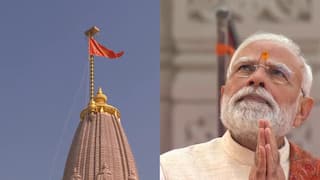NPCI Set To Revisit 30% UPI Market Share Cap By Year's End: Report
As per NPCI data, two companies, PhonePe and Google Pay, collectively command nearly 86 per cent of the UPI market share in terms of transaction volumes

The National Payments Corporation of India (NPCI) intends to reassess its plan to impose a 30 per cent cap on the market share of payment providers offering Unified Payments Interface (UPI) services by the conclusion of 2024, reported Business Standard, citing sources.
The deadline for implementation of this limit remains December 2024. “There is still time for it. The 30 per cent cap on the transaction volume of payments players offering UPI services will be reviewed by the end of this year,” an industry source told Business Standard.
During March, the NPCI held meetings with new UPI participants to explore avenues for UPI expansion. In November 2022, the NPCI initially proposed imposing a 30 per cent volume cap on third-party application providers. It mandated UPI participants to restrict their market share to 30 per cent within a two-year timeframe.
As per NPCI data, two companies, PhonePe and Google Pay, collectively command nearly 86 per cent of the UPI market share in terms of transaction volumes. PhonePe holds 48.3 per cent, while Google Pay accounts for 37.6 per cent.
Meanwhile, Paytm Payments Bank, positioned as the third-largest UPI player, has significantly lagged behind. Its market share declined following regulatory restrictions imposed by the Reserve Bank of India (RBI) in January this year. The subsequent two players, Cred and Axis Bank Apps, each hold less than one per cent of the market share. Paytm handled 1.23 billion transactions in March, a decrease from 1.57 billion in January 2024. The company held a 9 per cent market share in UPI as of March this year.
According to the report, companies are reluctant to invest in the UPI ecosystem due to the absence of transaction fees and the lack of a merchant discount code (MDR). However, major fintech firms have recognised UPI as an effective channel for customer acquisition and have consequently made substantial investments in the platform.
“UPI has the ability to grow multifold. However, zero MDR is restricting newer players to come in or for them to invest (in the ecosystem). Once that is done, the market should balance itself on its own,” the report cited another source.
The report mentioned that deliberations regarding implementing MDR on UPI transactions can only occur with the government after the general elections. Dilip Asbe, NPCI's managing director and chief executive officer, remarked at a January event that significant merchants conducting UPI transactions might face a "reasonable" charge for such transactions within three years. However, he did not specify the exact fee structure.







































